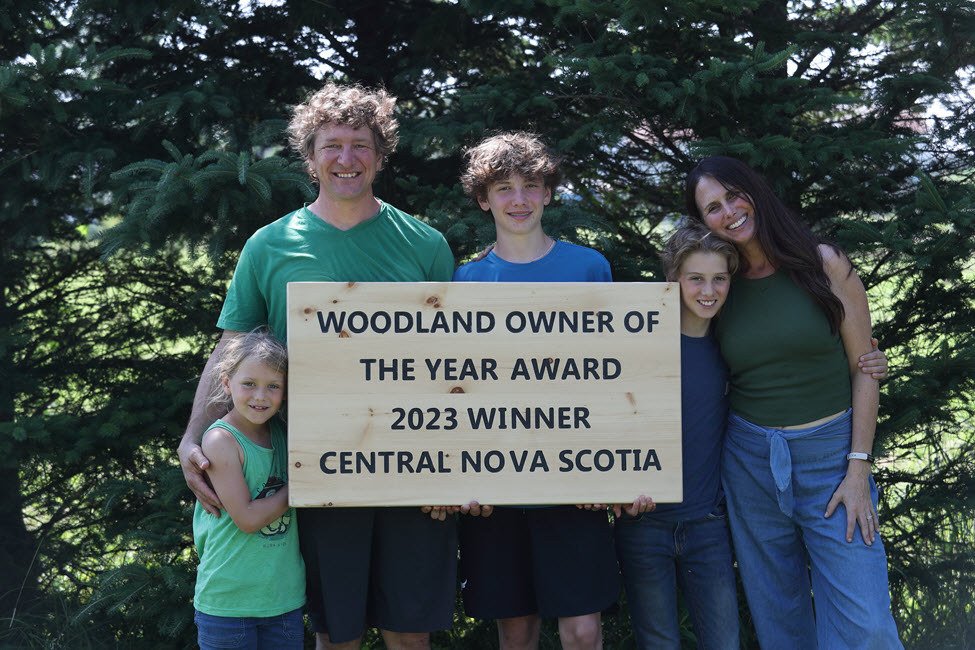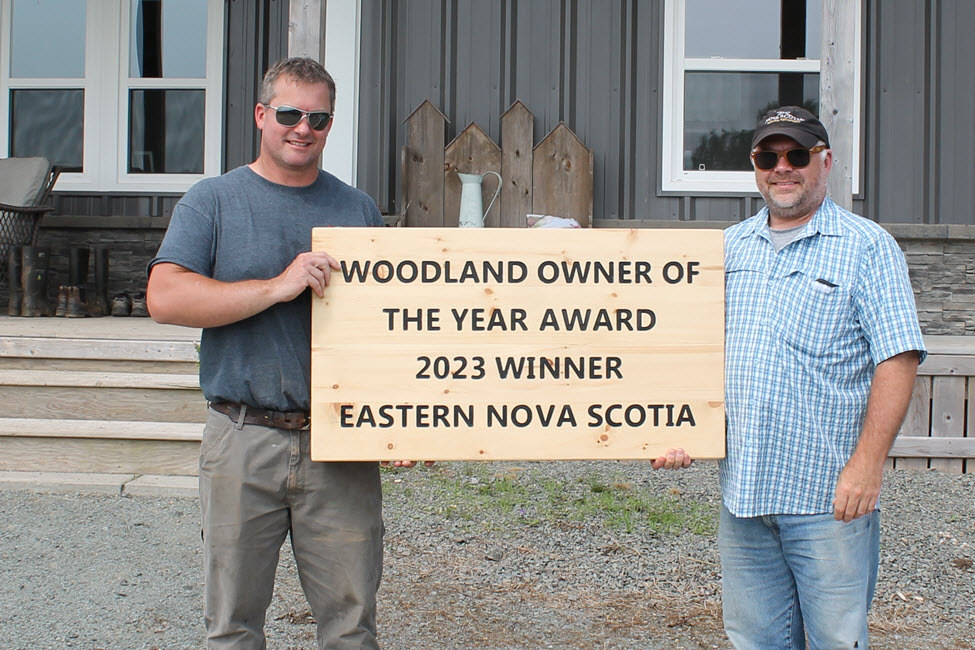
Meet the 2023 Winners: Woodland Owner of the Year
Central and Provincial Winners: Beau and Laura Blois

Beau and Laura Blois are the winners of the 2023 Woodland Owner of the Year Award
Beau and Laura Blois own a 1,226-hectare property in Old Barns, Colchester County. Beau is an emergency room physician and maintains the property with Laura and their three children.
The property has a woodlot, a black Angus beef farm and a 130-year-old restored barn that holds concerts and events. It also has trails for mountain biking, skiing and snowshoeing.
Beau grew up on a 2,000-acre property in Gore, Hants County. He and Laura used wood harvested from that property to build their family home in Old Barns and restore the siding of their barn. Beau uses wood harvested from his own woodlot for other woodworking projects and is passing this skill on to his children who enjoy make cutting boards.
The Blois family focuses on biodiversity with their woodlot providing habitats for wildlife such as foxes, rabbits, deer, salamanders, snakes and birds, as well as a variety of wild mushrooms. Their woodlot is Forest Stewardship Council certified and makes a minimal impact on the forest. Beau practices ecological forestry, using single tree extraction techniques to maintain the health and biodiversity of the woodlot for years to come.
Eastern Region Winners: Stephen and Michelle Van de Weil

Stephen Van de Weil receives the award for the eastern region from Jason Chard
Stephen and Michelle Van de Weil own a 110-acre woodlot in James River, Antigonish County. Stephen manages the woodlot while also working as a firefighter.
Their woodlot has white spruce and yellow birch trees. It features an ancient ash tree that they’ve nicknamed Father Time because it’s estimated to be 300 to 400 years old. An example of Stephen’s commitment to ecological forestry is thinning 350-acres of the woodlot using a spacing saw.
The couple keeps 30 chickens and three horses, including one miniature. Every season, they tap 30 maple trees. They also keep 20 honeybee hives to pollinate 30 acres of blueberry fields. Rather than using the honey for commercial purposes, they feed the honey to the bees. The biodiversity on their land also includes bears, deer and coyotes.
Western Region Winners: James and Linda Smith

James Smith receives the award for the western region from Stephen Freeman
James and Linda Smith own a 307-acre woodlot in Sable River, Shelburne County. This property is just a few kilometers from the coast, so their woodlot is the Atlantic coastal forest type.
The couple is recultivating the land which was affected by a fire in 1902 and a clearcut in the late 1940s. They’ve planted tree species such as elm, lilac and both American and Dunstan chestnut. They’ve also seeded more than a million red maple and red spruce trees.
James has been using corrugated tubing for some of the trees – it acts as a miniature greenhouse to speed up the growth rate. He demonstrates ecological forestry by taking large seed trees after partial harvests to promote natural re-growth and biodiversity on the woodlot.
After buying the property in 2012, James built a road network using only materials sourced from the woodlot. In 2018, it was classified as a class “D” road network.